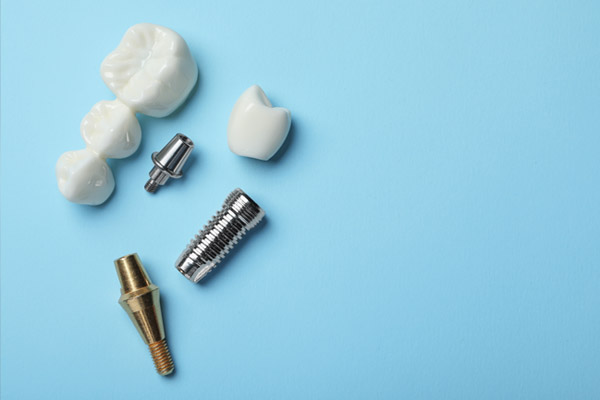Ask a Periodontist: Are Bleeding Gums a Cause for Concern?

If you are worried about bleeding gums, you should see a periodontist. These are dentists who have additional training on issues affecting the gums. We've all had bleeding gums at some point in our lives. Causes can stem from recent dental work or brushing too hard. How concerned a person should be when they notice their gums are bleeding depends on why their gums are bleeding in the first place. Read on for an explanation from a periodontist.
A periodontist discusses bleeding gums
There are specific activities where light bleeding is perfectly normal. For example, a little bit of blood on dental floss or in saliva after brushing is not a reason for concern if it is limited to a small area and does not occur regularly. This type of gum bleeding happens when there is a slight irritation of the gums. Food injuries can also cause harmless gum bleeding. A person might get poked in the gums by a piece of hard food like a tortilla chip and experience some bleeding. This is often not a cause for concern unless there is considerable damage.
Bleeding gums can also be a sign of a more severe issue like gum disease. If it occurs more frequently than it once did or there is pain or sensitivity associated with it, that might be a sign of a serious dental issue. Gum disease is not the only issue that can lead to bleeding gums. Other culprits include:
Stomatitis
This disorder leads to bleeding and pain coming from the gums, lips, tongue, and cheek. It leads to inflammation and irritation of the soft tissues in the mouth. There is an assortment of issues that can lead to stomatitis, and the condition requires immediate treatment.
Hemophilia
This leads to excessive bleeding any time a person gets cut. Even a small cut can lead to significant blood loss when dealing with hemophilia. Any hard contact with the gums can lead to severe bleeding when battling this disease. Genetics plays a big role in hemophilia.
Bad oral hygiene
While poor oral health does not necessarily always lead to bleeding gums, it does lead to one of the most prevalent dental issues: gum disease. Periodontists can help to reverse the early stages with treatment and good oral hygiene, but the advanced stages are permanent. One of the significant signs of gum disease is bleeding gums, and the condition will eventually lead to the loss of teeth when left untreated.
Infection
Bleeding gums can also be a sign of a dental infection. An infection occurs when bacteria enter a tooth’s pulp chamber or bone tissues in the mouth. It is a serious dental issue that requires immediate treatments since there’s a risk of the infection spreading into other areas like the bloodstream, heart, or brain, where it can be life-threatening.
Other symptoms linked to infection include excruciating toothaches, pus coming from the gums, bad breath, and inflamed gum tissues. The standard approach to treating infection is root canal therapy. The procedure involves drilling a hole into the affected tooth and applying medication to the area before sealing it off. The treatment allows the patient to save their infected tooth.
In some cases, a dentist might recommend extracting an infected tooth if there’s a serious risk of the infection spreading to other parts of the body.
Improperly-fitting dentures
Bleeding gums can also signify improperly-fitting dentures that rub against the soft tissues in the mouth, like the cheeks and gums. This frequent irritation makes these soft tissues sore and can lead to bleeding.
A patient might be advised to get new dentures, or their current set might be relined if a dentist assesses that their bleeding gums are caused by poorly-fitting dentures.
Vitamin K deficiency
A vitamin K deficiency might be the cause of a patient’s bleeding gums. The dentist might explore this option when other possibilities have been ruled out. The patient might be given vitamin K supplements or instructed to eat more foods rich in vitamin K, like green leafy vegetables.
Pay attention to your gums
No one knows your gums better than you do, so pay close attention whenever you notice your gums are bleeding. It might be a sign that you are brushing too hard or a sign that a trip to the periodontist is in order. Are you currently dealing with bleeding gums? Contact our clinic to set up an evaluation with a periodontist today, so you can address the cause before it leads to something more serious.
Request an appointment here: https://corderoperiodontics.com or call Rafael E. Cordero, DDS PA at (561) 763-9221 for an appointment in our Palm Beach Gardens office.
Check out what others are saying about our dental services on Yelp: Periodontics in Palm Beach Gardens, FL.
Recent Posts
Periodontal treatment from a periodontist is a great way to address a range of gum and jawbone concerns. They can also treat issues like missing teeth. This review discusses the various treatment options that are available for patients who consult a periodontist and highlights the signs that indicate a need to visit this specialist.Popular treatment…
A periodontist will examine your complete medical and dental history on your first visit to the office. This is to check if you react to specific medications and have any pre-existing disorders impeding your dental care. Your periodontist will then perform a comprehensive gum examination to look for signs or symptoms of illness.In certain situations,…
Part of having good oral health is avoiding periodontal disease and maintaining healthy gums. Unfortunately, gum disease is a common issue that people have, though it is preventable. You can take everyday steps to avoid problems with your gums. If you neglect these needs, you can experience severe consequences. You should understand periodontal disease and…
Periodontics and dental implants are two areas of dentistry that often go hand in hand. Both of these treatments are important for helping to preserve the health and beauty of your smile. While periodontics is focused on treating diseases of the gums and bone, dental implants are focused on replacing lost teeth with artificial ones.…


